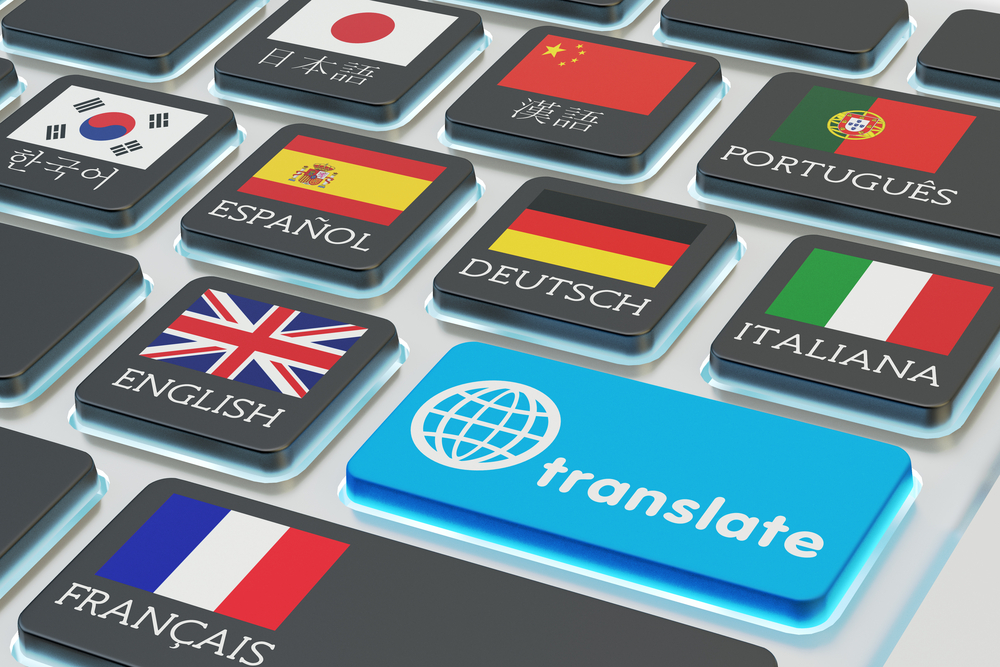
Understanding English Translation to Albanian: Key Considerations
In today’s global economy, businesses, academic institutions, and legal entities increasingly require precise translation services to bridge language barriers. Accurate translation is crucial for companies seeking to expand in Albania or communicate effectively with Albanian-speaking partners. Understanding the nuances of English translation into Albanian can ensure successful communication, protect legal interests, and improve business outcomes.
In this guide, we’ll explore the unique features of the Albanian language, common translation challenges, and best practices for achieving high-quality language translations. Whether you need translations for academic research, legal documents, or business communications, understanding these considerations will help you secure exceptional results.
The Unique Characteristics of the Albanian Language
Albanian is an Indo-European language with distinct features that require expert knowledge when translating English into Albanian. Here are key linguistic aspects to be aware of:
1. Complex Grammar Structure
Albanian grammar presents several complexities that differ from English:
- Definite and Indefinite Forms: Unlike the English language, Albanian nouns are declined to indicate definiteness. Translators must account for these nuances to avoid ambiguity.
- Cases: Albanian utilizes five primary cases (nominative, accusative, genitive, dative, and ablative) to indicate a noun’s role in a sentence. Incorrectly interpreting these can alter meaning drastically.
- Verb Conjugations: Albanian verbs exhibit complex tense structures that may not have direct English equivalents. Expert translators must understand when to simplify, adjust, or creatively convey meaning.
2. Distinct Vocabulary and Loanwords
Although modern Albanian incorporates some borrowed words from Turkish, Italian, and Greek, it retains a core vocabulary with unique roots. Translators must have a deep understanding of Albanian semantics to avoid inaccurate word choices.
3. Idiomatic Expressions and Colloquialisms
Albanian idioms rarely translate directly from English. An experienced human translator will recognize when to adapt phrasing to maintain the intended meaning and cultural relevance.
Key Considerations for English-to-Albanian Translation
When translating from English to Albanian, professionals must navigate linguistic differences, cultural sensitivities, and technical terminology. Here are critical considerations to ensure accuracy and clarity:
1. Cultural Context
Albanian communication styles can vary significantly based on social norms, traditions, and regional dialects. Understanding these cultural differences ensures the translation resonates with the intended audience.
2. Formal vs. Informal Language
Albanian often distinguishes between formal and informal communication. In legal or business document translation, professional language is crucial to maintaining credibility. Translators must assess the tone required for the audience and apply language accordingly.
3. Industry-Specific Terminology
Industries such as finance, medicine, law, and technology require specialized terminology. Translators with expertise in these fields ensure that technical terms are accurately conveyed in English, minimizing the risk of misinterpretation.
4. Document Formatting and Layout
Albanian text can expand by 15-30% when translated from English. This may require adjustments in document layout, especially in business presentations, contracts, and marketing materials. Desktop publishing (DTP) services ensure translated content fits seamlessly into the original design.
Common Challenges in English to Albanian Translation
Translating from English to Albanian comes with inherent challenges that require professional expertise. Key challenges include:
1. Ambiguities in Meaning
Albanian words can carry multiple meanings based on context. Experienced translators analyze sentence structure, intent, and surrounding text to ensure the correct interpretation is applied.
2. Dialect Variations
Albanian has two main dialects: Gheg (spoken in the north) and Tosk (spoken in the south). While standard Albanian is based on the Tosk dialect, translators must be mindful of regional language differences, especially in informal or colloquial content.
3. Legal and Regulatory Terms
In legal translation, precision is paramount. Albanian legal systems may use terminology unique to the region. Translators with legal expertise ensure critical documents like contracts, court rulings, and affidavits are interpreted with accuracy.
4. Maintaining Confidentiality
Professional translation services employ strict confidentiality measures to safeguard sensitive information in legal, financial, and business documents.
Best Practices for Ensuring Quality English Translation to Albanian
Selecting a qualified translation service ensures your content is clear, accurate, and culturally appropriate. Here are the best practices to follow:
1. Work with Certified Translators
Engage certified translators with proven experience in English-to-Albanian language services. Certification ensures adherence to industry standards for translation accuracy and confidentiality.
2. Leverage Translation Memory Tools
Translation memory software helps maintain consistency in terminology across large documents or multiple projects. This is particularly useful for business contracts, technical manuals, and academic texts.
3. Invest in Editing and Proofreading
A robust translation process includes quality control steps such as editing and proofreading to identify errors and improve clarity. Working with a translation service that offers this ensures a polished final product.
4. Utilize Desktop Publishing Services
Professional desktop publishing ensures translated content retains its original layout and visual appeal. This is vital for marketing materials, brochures, and presentations requiring a professional finish.
5. Communicate Clearly with Translators
Providing clear instructions and reference materials ensures translators understand your objectives, preferred terminology, and target audience. This minimizes revisions and ensures content meets your expectations.
Industries That Rely on English Translation to Albanian Language
Several industries require precise English-to-Albanian translation services, including:
- Legal Firms: For contracts, court documents, and affidavits.
- Healthcare and Pharmaceuticals: For medical research, patient records, and clinical trial documentation.
- Education and Academia: For research papers, transcripts, and academic presentations.
- Technology and Engineering: For user manuals, technical guides, and software localization.
- Finance and Banking: For investment reports, financial statements, and legal compliance materials.
Why Choose Etcetera Language Group, Inc.?
At Etcetera Language Group, Inc., we specialize in delivering precise English translation to Albanian language services for corporations across industries. Our team of certified linguists ensures your content is accurate, clear, and culturally relevant. With expertise in document translation, desktop publishing, and multilingual communication, we provide tailored solutions that meet your business objectives.
Whether you need legal documentation, technical manuals, or marketing materials translated, Etcetera Language Group, Inc. is your trusted partner for professional translation services.
Contact us today to learn how our expertise can support your global communication needs.
More...
Categorised in: Translation Services





